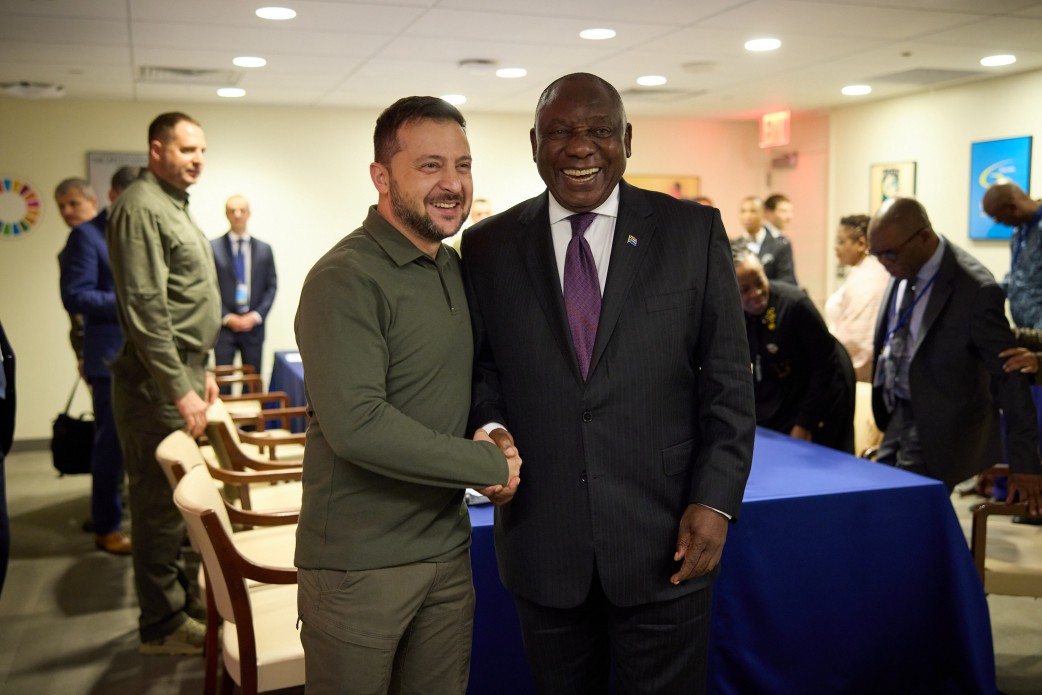Ukrainian President Volodymyr Zelenskyy has arrived in South Africa on state visit aimed at resolving the ongoing Russia-Ukraine war and deepening international economic cooperation.
The Ukrainian leader’s arrival today, Thursday, April 24, 2025, comes at a critical moment as tensions rise globally and Ukraine’s traditional Western alliance’s face uncertainty notably with the United States.
Zelenskyy’s visit also coincides with South Africa’s presidency of the G20, a role that has seen the country championing global governance reforms and challenging the imbalances of current multilateral systems many of which have been brought into sharper focus by the war in Ukraine.
South African president, Cyril Ramaphosa reaffirmed South Africa’s desire to serve as a neutral convener of global discussions on conflict resolution.
“Talks will focus on efforts to find a path to peace,” Ramaphosa said.
A major item on the agenda is Ukraine’s campaign for the return of children abducted by Russian forces, an issue at the heart of the International Coalition for the return of Ukrainian children.
Zelenskyy is expected to rally support from South Africa and other African nations to back the coalition’s humanitarian efforts and condemn these violations on international platforms.
Beyond diplomacy and peace, the visit also aims to deepen economic ties between Ukraine and Africa’s most industrialized nation.
While the visit may stir tensions with Moscow, analysts believe it reflects Kyiv’s urgent need to reposition itself on the global stage.
Dr Oscar van Heerden, a foreign policy expert recognized Zelenskyy’s move considering South Africa’s potential to influence dialogue among BRICS nations.
“Zelenskyy knows the symbolic power of showing up in places where Ukraine’s voice has not traditionally been heard,” he said.
As Zelenskyy and Ramaphosa meet in Pretoria, the world watches closely. The outcome of this visit may not yield immediate results, but it represents a critical juncture in the evolving global response to one of the most complex and consequential conflicts of the 21st century.
